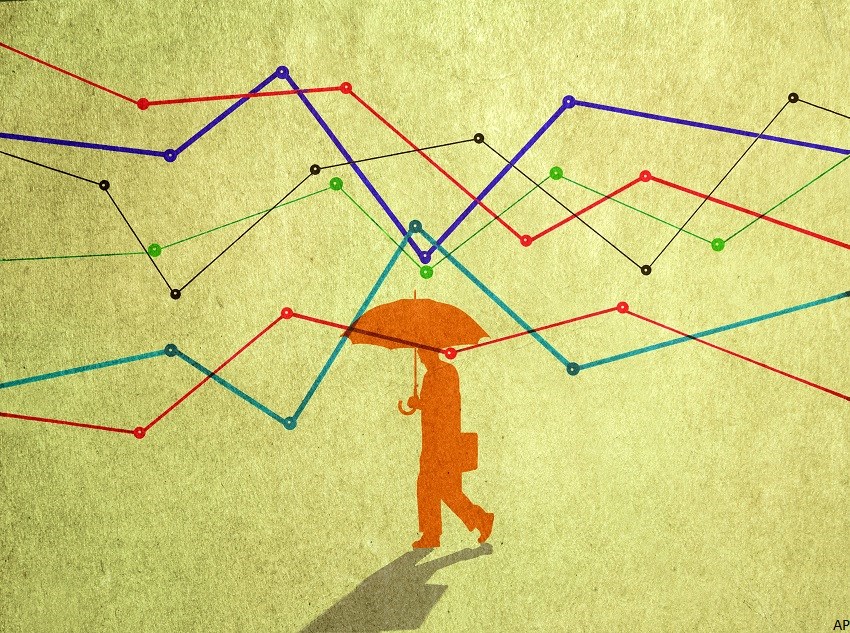
Given what I do for my day job, people are often lobbing financial questions my way. Some of these queries are layups because they are, inherently, about dollars and cents. What to do with an old RRSP. What's the best RESP. How to invest in a TFSA.
But some of the biggies that come my way are more complicated. They're questions where money is just one of many considerations, and where the big-picture question--and the right decision in response--is inherently personal. A spreadsheet might yield some insights, but it's far from the deciding factor, and it could actually cloud the right answer. That's why I've written that when making decisions that involve your finances, it's important to remember that not everything can be weighed and measured. Your personal preferences, appetite for risk (or peace of mind) and simplicity, and good old common sense are just as important to arriving at the right answer as is crunching the numbers.
Here are some of the key decisions where the right answer involves a bit of introspection and asking big-picture questions rather than going strictly by the spreadsheet.
Whether and When to Retire
Financial resources are obviously a key input when deciding whether and when to retire. Will your income from government programs or a pension, augmented with periodic portfolio withdrawals, provide you with the life you want to lead in retirement? Some pre-retirees even operate with an asset number in mind--"I'll rely on my retirement accounts once they get up to $XXX,XXX." And there's no doubt that a clear-eyed assessment of withdrawal rates is a crucial step when preparing for retirement.
But another set of questions should precede the number crunching about retirement, or at least run on a parallel track. What do you plan to do with your time in retirement? If you derived a sense of purpose and/or social connections from your work, what will you do to replace them? A deep body of research points to the value of purpose and social interaction as contributors to happiness and even physical well-being in retirement. I would therefore argue that answering those questions should precede--or at least run in tandem with--any investigation into the financial aspects of retirement. Relatedly, for many workers there's a strong case to be made for blurring the line between working and retirement. Rather than leaving work altogether, many would-be retirees might explore whether they can hang on to the parts of their jobs that they really enjoy or pursue positions that are more gratifying but financially less remunerative.
Whether to Buy or Rent a Home
"Well, first question, do you like owning a home?" I can still remember the puzzled look that crossed my friend's face when that was my response to her question about whether she should buy a home. As a newly divorced person, she was asking me for financial advice, so why was I asking her about how she "felt" about homeownership? I persisted: "You know, do you mind having to deal with repairs when they come up? Do you feel like you would get to know your neighbors better if you were a homeowner? Stuff like that."
Because the fact is, homeownership isn't inherently a home run from a financial standpoint; a lot of one's financial success on the real estate front boils down to location, timing, and luck. By extension, renting isn't inherently "throwing money away." It can often be the right call. Given that, nonfinancial considerations should usually be the major factors in deciding whether to go forward with a home purchase. In addition to considering maintenance obligations and social connections, as I prompted my friend to do, prospective homebuyers should take into account whether a rental could offer the same amenities that they could get through homeownership and whether homeownership or renting would provide them with a greater sense of peace and security. In other words, don't buy a home for financial reasons; make sure quality-of-life considerations are central to the thought process.
When to Buy a Home
In a similar vein, would-be homeowners often use home prices or, more frequently, mortgage interest rates, as a cue to decide when to buy a home. After all, if you can lock in a home purchase at the lowest possible price or interest rate, that dramatically reduces your outlays over the life of your loan.
But home prices and interest rates are just a few of many inputs to consider when deciding if the time is right for homeownership. Even further up in the queue should be how long you plan to stay in the home. As Cullen Roche noted in our conversation for The Long View podcast, buyers would do well to consider homeownership as a long-term investment, akin to a long-duration bond. Because property markets can be volatile in the short term, homeowners who need to sell out after a short period of time run a much greater risk of losses than is the case for long-term homebuyers. Moreover, transaction costs on real estate purchases and sales can take a healthy bite out of profits. Thus, prospective homebuyers who might need to relocate or move to a larger home within a few years of buying should consider renting until their plans are more certain. Your own situation, rather than interest rates or home pries, should be the biggest determinant of when to buy.
Whether to Pay Off a Mortgage
Sure, you can calculate a return on investment for mortgage paydown. It's basically your interest rate, less any tax breaks you're receiving for carrying the loan. Based on today's low interest rates, the return on investment from mortgage paydown isn't very high, and stocks' return has handily outpaced it. But at the end of the day, mortgage paydown delivers a "return" that can't readily be measured in the same way: peace of mind.
The key question for mortgage paydown then, isn't math-related. Rather, it's "How much do you need a peace-of-mind allocation?" If you're a 35-year-old with a long runway to retirement and a secure job, the answer is probably "not much," and you're better off using those funds to invest in your retirement accounts. But if you're hurtling toward retirement, your appetite for peace of mind is likely higher, and reducing your fixed expenses through mortgage paydown is a good way to achieve it. For some investors, the middle ground is the right course of action--making a small additional payment each month can help shorten the term of your loan without dramatically curtailing the ability to contribute to retirement accounts.
Whether to Change Jobs
Some friends recently shared the tale of their 20-something daughter who works for one of the top firms in the United States. She received a wonderful job offer from a competing firm; everything about it outshone her current compensation package, and the new firm was going to let her live wherever she wanted. She turned to my friends (her parents) for advice. Their first questions: Do you want to leave your current employer? Do you think you'd be happier working at this other company? No and no, she answered. And with that she decided to stay put.
Of course, that's a rarefied example. But many workers find themselves with a lot of bargaining power in the job market right now, and that can leave them juggling multiple offers. In my experience, job-hunters often latch on to what's quantifiable in this situation--how the salary, bonus, and benefits package at one employer compares with the other. But I would argue that a better starting point is asking which of these workplaces and positions will make you happiest and offer the best opportunities for long-term growth. Which people would you most enjoy working with? Which job and workplace are you least likely to find yourself dreading on Sunday night or Monday morning? If a couple of opportunities are close from a quality-of-life standpoint, then you can use salary and benefits as a tiebreaker.
Where to Live
"Toronto? The home prices and traffic are the worst!" I can't tell you how many times I've heard some version of that line from audience members, usually after I've given a talk in some sunny geographic locale. They've got a point. But would financial considerations ever play a big role for me in deciding whether to move? I sure hope not. (Weather? Maybe.)
Sure, the cost of living in a given geographic locale is a consideration, and it might be an especially important one for young people just starting out or for those who are barely making ends meet in a high-cost place. But there are few things as foundational to happiness and relationships as where you live, so my bias would be to put financial considerations way down in the queue when making decisions about it. Relationships, cultural affinity, commuting time, and activities strike me as far more important




















